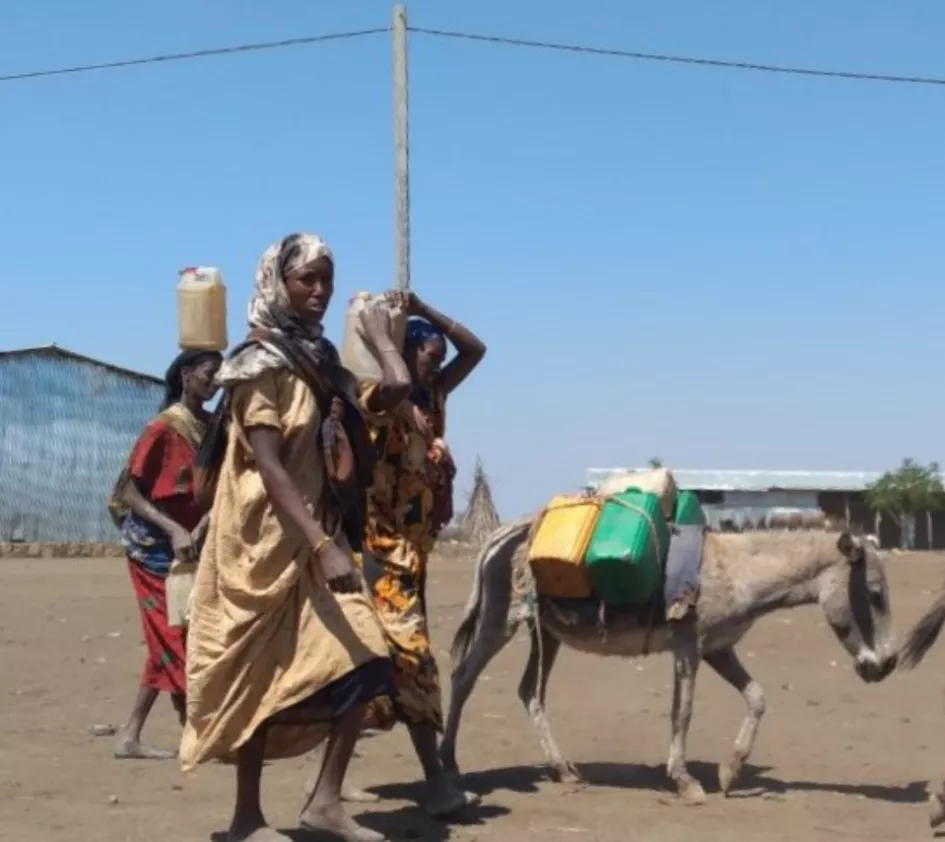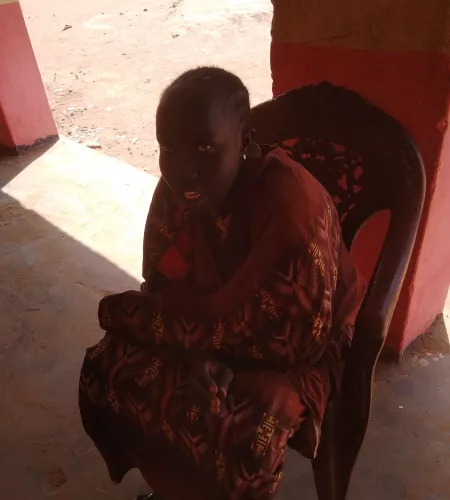Achai (35) is mother of eight children. She lived in Sudan with her family, but the war there forced them to flee back to their native country South Sudan. Her husband is a soldier and unfortunately could not stay with his family.
Achai and her children were dropped off at the border with South Sudan. Then they walked for five days and nights to the town of Aweil. That's where the suffering piled up. Achai was captured by South Sudanese and robbed. Her seven-year-old son was kidnapped.


